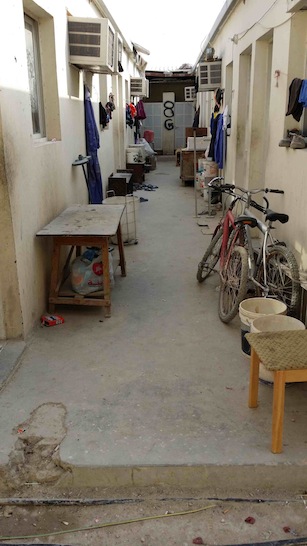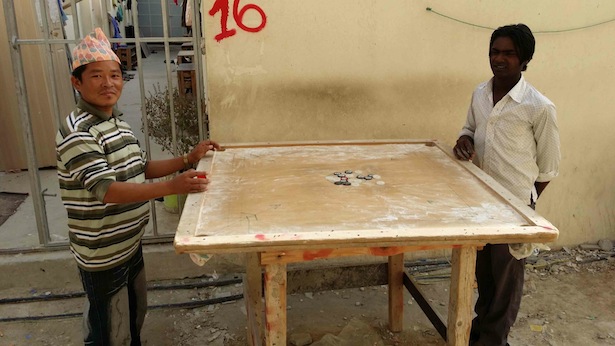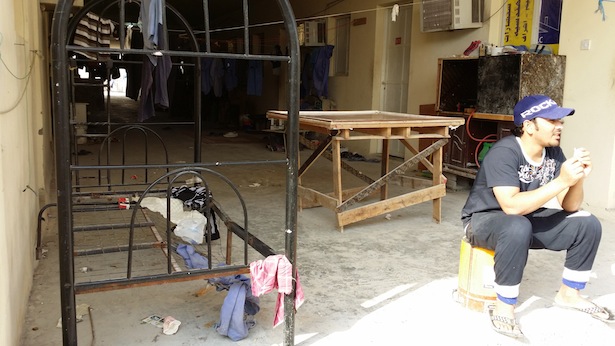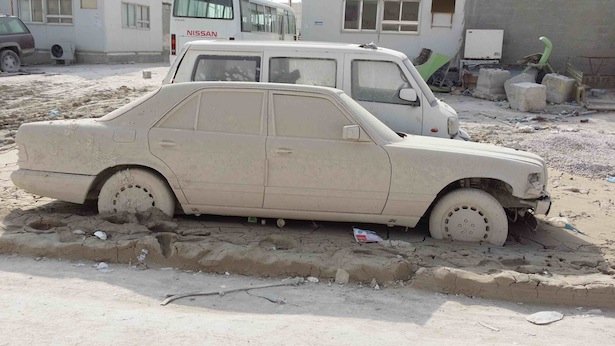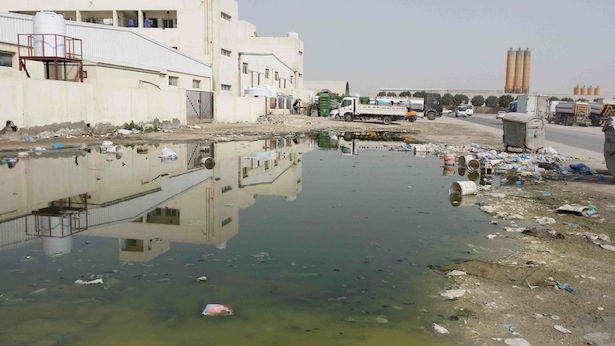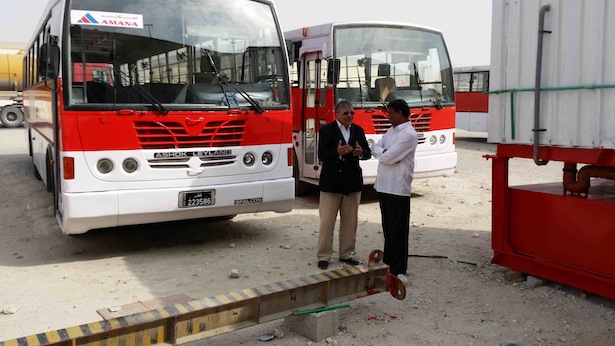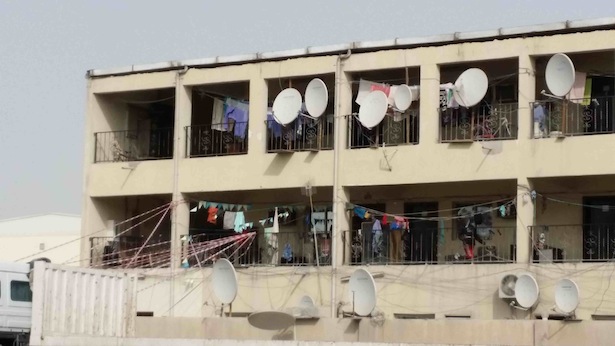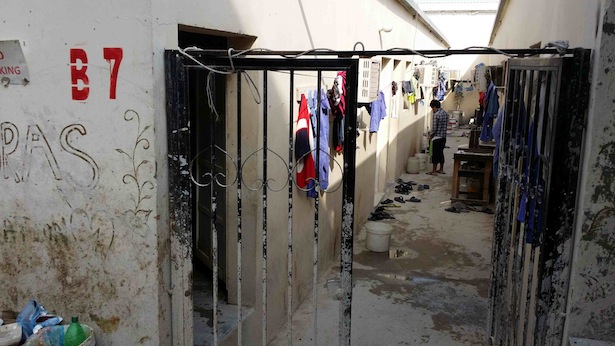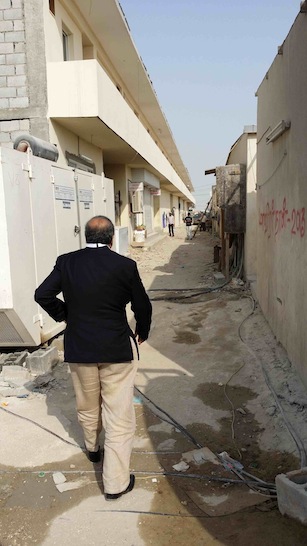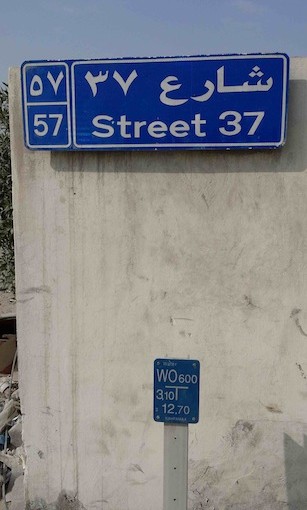Much has been made in recent weeks of the terrible working conditions of migrant labour in Qatar. As the hosts for the 2022 World Cup, the spotlight was always going to be on the Gulf state but even then Amnesty International’s report on migrant workers presented a dreadfully bleak picture of the conditions of those involved in the infrastructure projects Qatar is undertaking as it prepares for its historic moment in the sun.
The Amnesty report mentioned that more than 80 migrant construction workers, who had worked for nearly a year without pay on a prestigious tower in Doha’s financial district, were facing serious food shortages and were in need of urgent government assistance. Salil Shetty, Secretary General of Amnesty International, after a visit to the workers’ camp in the al-Sailiya industrial area said: “They have not had been paid for nearly a year and can’t even buy food to sustain themselves on a day-to-day basis. They also can’t afford to send money back home to their families or to pay off debts. The Qatari government must step in now and end this crisis. The men have told us they simply want to collect the unpaid wages they are owed and to leave the country. The Ministries of Labour and Interior must deliver that as soon as possible. Doing so will signal that the government really means what it says about protecting workers’ rights.”
Conditions at the camp were described as grim. Some workers were said to be sleeping on hard wooden boards without mattresses, and some of the temporary accommodation buildings were dangerously unstable; the floors and ceilings in one bedroom close to collapsing.
All this seemed a world removed from the Torch Hotel and Aspire Academy where the Doha Goals’ Forum took place a couple of weeks ago. This was meant to show the world how, in becoming the first Middle Eastern, Muslim country, to stage the world’s greatest sport, Qatar was also becoming an ionic centre for sport coming up with ideas that would help sport solve its many problems, such as match fixing. As the dignitaries from round the world met to discuss such issues they were surrounded by seven star luxury with no expense spared.
But as I discovered while covering the Doha Goals Forum, the migrant world was just a 15 minute taxi ride away, an area where streets had numbers and no names. This is where many of Qatar’s migrant labourers live on sites packed into residential boxes in the middle of the huge infrastructure construction work now taking place in Qatar. And as the Bangladeshi taxi driver took us to Street 37 and the adjoining streets he gave us a flavour of life for these migrants.
We were being driven in a four-door saloon of the type that hardly raises an eyebrow in the area around the Torch – everybody has them as few well off Qataris seem to walk. But as soon as we hit Street 37 the car was rocking and bouncing for while this was supposed to be a street there was no paved street, just a pathway in the middle of a building site. And the Bangladeshi taxi driver told us that some of the pathways here were so bad that only a 4×4 could negotiate them.
And if Street 37 was not really a proper street then it also seemed the dumping site for much of Doha: strewn with rubbish and debris and an ideal place for cats to wander around. In one area such was the lack of drainage that a lake had formed inch deep in water and filled with rubbish. Residents would have to negotiate this lake of muck and dirt to get to their tiny flats which bristled with clothes lines and satellite dishes.
The Bangladesh driver told us eight people lived to a room, the beds were packed so tight that it was like being in a submarine and the distance between two persons was no more than the spread of a man’s raised elbows. And to illustrate he stopped the car, extending his arms across his chest as if about to commence exercise. Just across from where we had stopped we could see wrecked cars thickly coated in dust.
However, amidst this extraordinary montage of cars seemingly caught in a sandstorm, there were a couple of newish looking Ashok Leyland trucks and in front of them stood an elegantly dressed man in white kurta and black trousers. In such dismal surroundings his sparking clean clothes looked incongruous. Shabaz Khan had come from Hyderabad in India to Doha almost a quarter of a century ago. He was a transport coordinator and when he first came to Doha in early 1984 there were only two such streets: Streets One and Two. Now the numbers extended to Street 52. A skilled labourer could, he said, earn 900 Riyals (£151) a month plus another 250 Riyals(£42) for food.
While acknowledging that conditions were bad Khan said that they were much improved from when he had arrived. Qatar then was just embarking on its construction projects to take advantage of its oil boom and the locals did not much care for the migrants who were flooding in. The local children often threw eggs at the labourers.
In one of the streets between two blocks of buildings which formed a little lane, I met a group of Nepalese workmen. One tiler lived in a single room which looked more like a garage accommodating his bed, a chair, a mirror, clothes line and a few other basic possessions. He said that he earned 1,200 Riyals (£200) a month plus 250 Riyals for food. His neighbour was a decorator and earned less, 900 Riyals a month with another 250 for food. Neither man looked miserable and they gazed quite contentedly at a group of Nepalese men playing Carrom, a very popular sub continental table game.
My taxi driver, on hearing the wages of the men, said that the general labourers earned around 500 Riyals (£84) with the technicians and engineers making up to 900 Riyals. A plumber from India could get 1,200 Riyals a month for an 11 hour day with another 250 Riyals for food. But unqualified Arabs were always promoted above these men as supervisors with Egyptians getting better off site accommodation. Back home in Bangladesh men could earn three times as much and hope to move up the job ladder. The only problem was there were no jobs there. Not all labourers in Qatar found work and during our tour we met a couple, both from Africa, desperately looking for work.
And then to illustrate how poorly paid were these labourers constructing the infrastructure that will make Qatar fit for 2022 the taxi driver charged us 250 Riyals for a two hour drive, half of what he had said the labourers get for a month’s work.
To be fair to Qatar, although some expressed fears I was going to the Labour camps with a camera no one stopped me or even asked what I was doing. And some of the awful labour camp conditions have been highlighted in the local press. Indeed I learnt of the existence of Street 37 from an article in the Gulf Times. But when I tried to talk to the reporter who had written it he did not want to talk about it, suggesting I refer to the paper’s website. Journalists in Qatar do write about local problems but unlike journalists in the west, do not want to be part of any campaign to change things.
It remains to be seen whether this will change as Qatar nears 2022. If so, then as Sepp Blatter and football often claims, the World Cup will have changed society.
Mihir Bose was the first sports editor of the BBC. He has worked for various media outlets and launched the Inside Sports Column for the Daily Telegraph. Now a freelance journalist he has written 28 books. His latest book: Game Changer: How the English Premier League Came to Dominate the World was published by Marshall Cavendish for £14.99. Follow Mihir on twitter @mihirbose.
